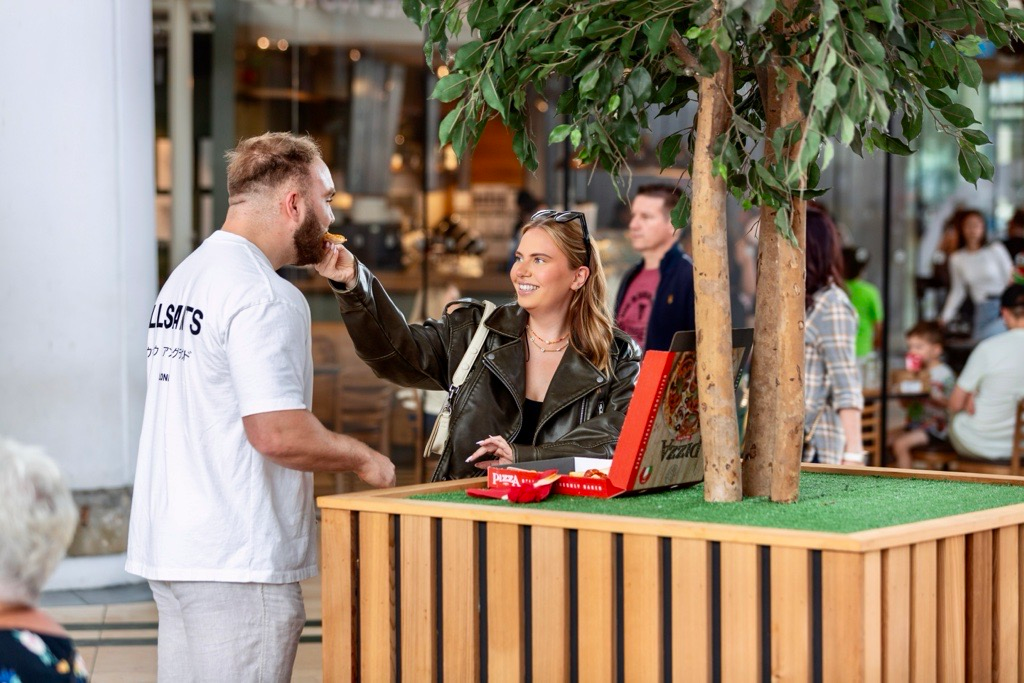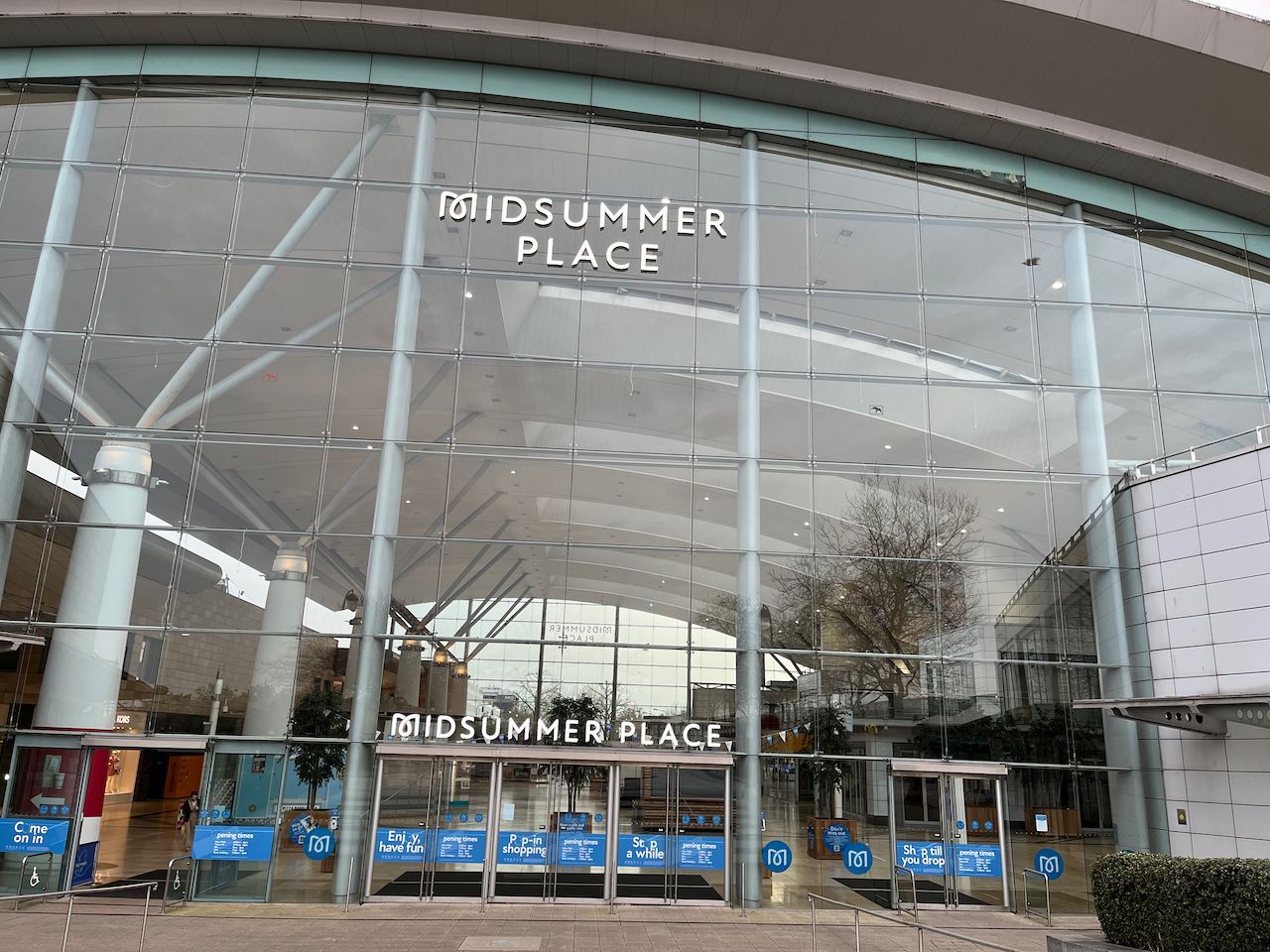
0207 016 3270
contact@ellandi.com
Can the Pandemic Rescue Britain’s Shopping areas?
Mark Robinson speaks to the NY Times
By Eshe Nelson
In a British coastal town, a major landlord is giving away free rent for two years as part of a redevelopment plan.
POOLE, England — Hope Dean is loyal to Poole, her hometown in southwest Britain, but she acknowledges that its shopping district has often been a source of embarrassment.
Just a few miles from the most expensive coastal real estate in the country, Poole’s main shopping street is a tired mix of video game shops, coffee shops, small chain stores and lots of markets selling secondhand items that have attracted a dwindling number of shoppers.
Perhaps the worst section over the years was Kingland Crescent, a forgotten stretch tucked under the shadow of a shopping center, described by Ms. Dean as “the street that everyone would avoid.”
Now Ms. Dean, a 27-year-old former events manager, owns a snug plant store on that same street. Her business, Wild Roots, is bright and colorful with shelves and tables piled high with plants, pots, cushions and books. A large bird of paradise plant catches the light from the window at the entrance.
Nearly a decade ago, a government-ordered review found that Britain’s so-called high streets — the retail bedrocks of the country’s town and city centers, comparable to America’s main streets — had reached a “crisis point.” Since then things have only gotten worse, as lockdowns and a surge in online shopping over the last year in response to the pandemic have accelerated the downward spiral of brick-and-mortar retailing. In 2020, a record number of shops closed.
To rescue high streets, an unlikely combination of vested interests are coming together. Giant asset managers and landlords are taking risks to revive their downtrodden investments, shoppers and businesses are reappearing from the pandemic newly interested in their local areas, and town officials are ready to spend heavily to spread confidence.
Enough confidence for Ms. Dean, and others, to bet their livelihoods on the high streets’ revival.
Wild Roots is one of 10 recently opened businesses on Kingland Crescent that are operating rent-free as part of a redevelopment project by the property’s owner, the giant London-based asset manager Legal & General Investment Management, a unit of the country’s largest corporate pension manager with more than 1 trillion pounds in assets. For two years, the businesses do not have to pay rent or a type of local property tax known as business rates.
“Poole really needs this,” said Ms. Dean, who decided to pursue her love of greenery after being laid off from her events manager job in the first six months of the pandemic. The property had been empty for six years; she was handed the shop’s keys in December.
She hopes renovations to the area will make Poole’s town center a destination. “I just want it to be a place where people will come for their weekends again,” she said.
Britain is facing urgent questions about what will happen to its retail spaces as the value of commercial real estate tumbles. National retail chains have collapsed, and stores have been boarded up and their contents sold to online retailers. By some estimates, Britain has 40 percent more retail space than it needs.
Retail sales jumped 9 percent in April as lockdowns eased and people rushed back to their favorite stores. But experts don’t expect this to last. They point to the need for deeper change.
Local officials, landlords and developers are betting that the future of downtown shopping districts lies in their past, when they were “the beating heart of most cities,” said Philip Broadhead, an elected member of the local governing council and the head of the area’s economic redevelopment efforts. High streets were once filled with small, independent businesses, including butchers, tailors, drugstores and services like insurers, travel agents and accountants. They were not completely given over to retailing.
To be sure, efforts to make high streets about more than just shopping have been attempted for years. What is different now, many say, is the attentiveness of locals: Pandemic lockdowns have forced people to stay close and reconnect with their towns.
The pandemic has “shaken government, local government and people out of complacency,” said Mark Robinson, the chairman of the High Streets Task Force, a body set up by the government. “If you don’t invest, if you do not care, if you do not shop, if you do not use it, you will lose it.”
It seems Legal & General Investment Management, with £3.5 billion in retail properties across Britain, has come to this realization. In 2013 it paid nearly £60 million for a 1960s-era shopping center in Poole that contained more than half of the town’s retail space, with an announcement promising “resilient income returns” for investors. But some of the stores — including the one now occupied by Ms. Dean’s plants store — stood empty for years.
It is now promoting its retail properties by focusing more on community events and local businesses as opposed to national chains. It has also announced a new leasing model that includes tenancies as short as three months and many more contracts with rents based on the company’s earnings, known as turnover leases. Other major landlords, including Hammerson and LandSec, have also introduced new leasing plans.
And then there are the new shopkeepers on Kingland Crescent. Besides Wild Roots, these include a packaging-free grocery store, a coffee roastery, a seafood store, a shop selling ethically made fragrances and a design studio. All opened in the past six months.
“For the first time in our generation we had the opportunity to press refresh with our environments,” said Denizer Ibrahim, who is leading the retail strategy at L&G. Part of the strategy is, in fact, moving beyond retailing: In the Poole shopping center, for example, it is planning to turn a corridor with about a dozen vacant spots into an adult learning center run by the local council, offering classes as varied as information technology and math, and beauty and hairdressing.
Emma Rowland, who opened Pen Gallery, an art exhibition space and store on Kingland Crescent nestled between a shop that sells custom surfboards and another selling restored furniture, said that without the free rent and business tax exemption her nonprofit gallery wouldn’t exist.
“I don’t think I would have even considered it, because the high street was dead and they needed to bring in everybody at once,” she said.
A few miles down the coast is Bournemouth, a larger city dealing with something of an exodus by large retail brands that have either failed or are downsizing. It has no fewer than three empty department stores, but the one on everyone’s mind these days is the chain that just recently collapsed, Debenhams, which occupied a massive building on the city square.
Across Britain, downtown shopping areas have been shaken by the closure of Debenhams, which had 124 department stores, including an edifice on Oxford Street in London. The company traced its history back two and a half centuries but could not survive the coronavirus pandemic; it closed the last of its outlets in May. Department stores were once the anchors of high streets, heavyweight symbols of local pride and prosperity. It could make them difficult to reoccupy, a similar challenge faced by America’s shopping malls.
But in Bournemouth, there is a plan. In a nod to the building’s history, Verve Properties, a developer specializing in reviving distressed buildings, is planning to reopen the building as Bobby’s, the name of the department store that occupied the site in the first half of the 20th century. Known formally as Bobby & Co., it was a regional chain that was taken over by Debenhams in the late 1920s and eventually lost its name in the 1970s.
Some of the 1915-era building’s architectural features that had been obscured over the years, like large windows overlooking the Bournemouth square, will be restored. Inside, the spaces will be leased out to different businesses, including a beauty department and art studio as well as a co-working space and restaurants across its seven floors.
Mr. Broadhead, who serves as the deputy leader of the joint council for Poole, Bournemouth and nearby Christchurch, can see only the upside in the collapse of Debenhams. “Suddenly you take a really drab department store that clearly wasn’t in the 21st century and you are redefining it,” he said.
But he still has to work out what to do with the rest of the city’s vacant space, including dozens of retail properties. Among the ideas are persuading landlords to offer short rent-free leases to help entrepreneurs get off the ground, or converting unused retail space into restaurants, housing, work spaces, health care centers and warehouses, or simply demolishing them to make space for parks.
It will take more than enthusiasm, of which there is plenty, to restore Britain’s high streets. Speed and huge investments will be needed to complete these projects after years of failed regeneration. To help, the government has set aside £1 billion for a “Future High Streets Fund” and a further £8 billion in other town center-focused funds.
Mr. Broadhead, confident and sharply dressed, is among a new breed of high-spending Conservatives governing Britain, led by Prime Minister Boris Johnson. His council is planning to borrow £50 million to finance redevelopment projects, and he argues that councils, which are chronically short of cash, should be allowed to borrow more and not have to rely on government grants.
On high streets, the postpandemic rebound “has been absolutely tremendous,” he said. “That will only last if people want to be there.”






